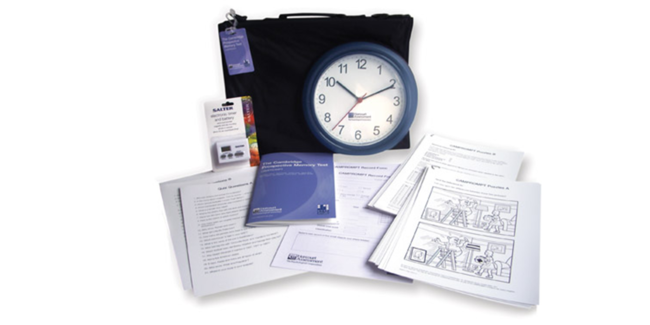Cambridge Prospective Memory Test (CAMPROMPT) is used to assess prospective memory (16 years and older)CAMPROMPT Kit is out of print as of September 2024
Cambridge Prospective Memory Test
CAMPROMPT
Cambridge Prospective Memory Test (CAMPROMPT) is used to assess prospective memory (16 years and older)CAMPROMPT Kit is out of print as of September 2024Choose from our formats
Test forms & reports
Booklets, record forms, answer sheets, report usages & subscriptions
1 option